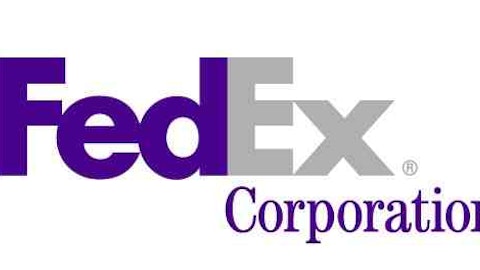Most economies around the globe are recovering, which in turn has bolstered air travel. As a result, airlines are reporting record load factors, and some countries are witnessing double digit growth for air travel. This suggests that commercial airliners would be looking to expand their fleets, which presents a bullish case for airline manufacturers.
Moreover, there has been a spike in defense contracts, and gauging from China’s aggressive military advancements, I think that trend is set to continue. This spells good news for The Boeing Company (NYSE:BA). On a global basis, Boeing is the largest manufacturer of commercial airliners (by volume), and the second-largest defense contractor, only behind Lockheed Martin Corporation (NYSE:LMT).
Rising Middle East tensions, and the ever-tense relationships of India with China and Pakistan, have caused a surge in defense contracts. Lockheed Martin reported record backlog of $82 billion, even though its net income plunged by 16.7%. International defense contracts for The Boeing Company (NYSE:BA) amounted to 24% of its revenues, and in 2012, its defense order backlog surged by 41%.
Since Lockheed Martin derives more than 80% of its revenue from domestic markets, proposed cuts to the US defense budget greatly limit its growth potential. But since Boeing is rapidly capturing international defense space, and its commercial segment is setting records, I think that altogether, this somewhat hedges the risks presented by US defence budget cuts.
Commercial jets
2012 was a record year for The Boeing Company (NYSE:BA). It reclaimed the top spot of the largest commercial airplane manufacturer (by volume), and delivered 601 airplanes, its highest output since 1999, and the second highest in commercial aviation history. Its order backlog of commercial airplanes stands at a record $319 billion, and management remains optimistic about its future prospects. Boeing made a smart move by siphoning off its earnings from defense contracts into the development of its ambitious Dreamliner project. As a result, its new orders in commercial space spiked by 49%, while Airbus reported a 41% plunge in new orders.
Airbus jets are designed and manufactured by European Aeronautic Defence and Space (NASDAQOTH: EADSY). Its management estimates that A380 deliveries will remain lackluster, and doesn’t expect spectacular growth in FY13, either. EADS management said: “The A350 XWB programme remains challenging. Any schedule change could lead to an increasingly higher impact on provisions.” This certainly doesn’t portray an optimistic picture for fat margins.
Conclusion
The battery problems in Boeing’s Dreamliners may have forced airlines to ground their 787s, but I don’t think this will tarnish the company’s reputation. The management of The Boeing Company (NYSE:BA) said that it would compensate airlines for their losses due to the inconvenience, and as far as flight security is concerned, US authorities have ruled out the possibility of any other electrical faults. This led to a consensus that fixing the battery would permanently get rid of the fire problems.
Although that compensation (whether big or small) would strain its cash flows and put a negative pressure on its share price, I think this gives Boeing investors an opportunity to buy it on dips. Boeing is reporting staggering growth in orders despite having over $58 billion in enterprise value (by market cap), and it appears to be a solid growth pick. Its shares yield a modest 2.51% with a healthy 34.97% payout, and I think Boeing deserves a buy rating.
The article Boeing: Value for Money? originally appeared on Fool.com.
Copyright © 1995 – 2013 The Motley Fool, LLC. All rights reserved. The Motley Fool has a disclosure policy.






